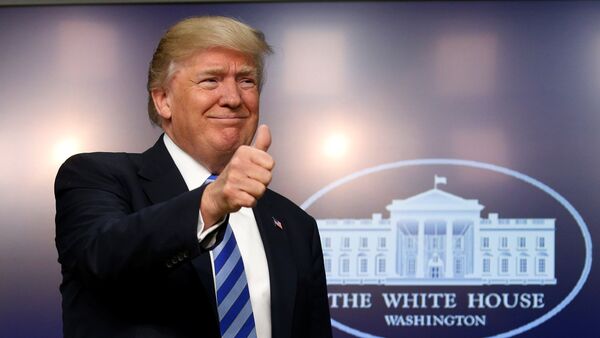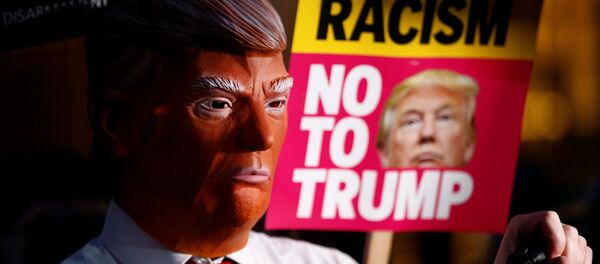WASHINGTON (Sputnik) — President Donald Trump has taken the United States far closer to being embroiled in several major wars around the world simultaneously during his first 100 days in office, military historian and retired US Army officer Maj. Todd Pierce told Sputnik.
"[Trump’s] first results are to confirm the fears that any rational person concerned with actual national security, not the faux ‘national security’ that military adventurism provides, should have had of him," Pierce said.
Trump had taken far more moderate positions on foreign policy issues and overseas conflicts during the 2016 election campaign than his defeated Democratic opponent Hillary Clinton, Pierce recalled.
"Because his electoral opponent [Hillary Clinton] was a hyper-militarist backed by much of Wall Street, he had to tailor his appeal to a different constituency. Consequently, he allowed people to believe that in the case of Russia and Syria at least, he was less interventionist than was his opponent," he said.
However, Trump’s early record as president had made clear this moderate image had been a false one, Pierce stated.
Pierce pointed out that Flynn and Ledeen had targeted for Trump countries bitterly opposed by the neoconservative movement in the United States.
"All [of those three] countries were long on the target list of radical American neoconservatives," he explained.
Trump had abandoned the reassuring rhetoric on which he had been elected, Pierce pointed out.
"He promised he would not be as militarily aggressive as his opponent was against some countries. Instead, he has taken measures to put us much closer to war with all them," he said.
Trump showed no signs of questioning the two hardline militarists he had chosen as his secretary of defense and national security adviser, James Mattis and H. R. McMaster, Pierce observed.
Trump remained "under the direction of what the media called his adult handlers, ‘Mad Dog’ Mattis and McMaster," he said.
Domestically, this had paid dividends by making Trump acceptable to war hawks in the national security community and media, Pierce noted.
"In fact, the political ‘mainstream’ has largely accepted him now," he acknowledged.
In coming months, Trump was likely to approve "more military aggression, less ‘rule of law,’ more violations of the US Constitution, as he is emboldened by the support he is now getting from what were once his neoconservative opponents," he said.
Virtually all the US foreign policy establishment had bought into the military extremism that was once the sole province of neoconservatives, Pierce concluded.




